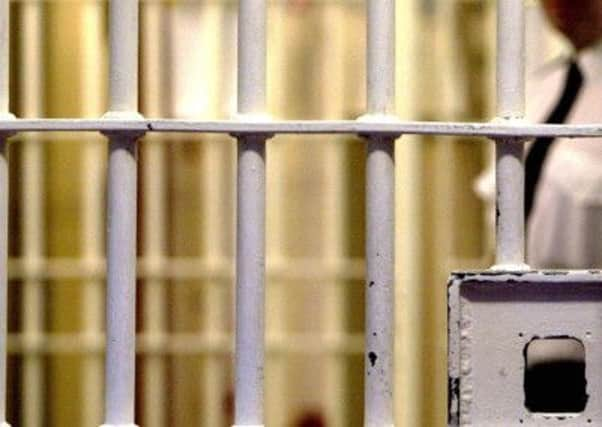400 more prisoners in overcrowded Scottish jails


About 400 extra prisoners will be added to already stretched prisons and the Scottish Prison Service (SPS) is warning more cash will be needed on facilities to accommodate them.
Scotland’s human rights watchdog has also voiced concerns over the impact on prison numbers and questioned where any extra cash will come from.
Advertisement
Hide AdAdvertisement
Hide AdNicola Sturgeon told MSPs last month that the government is ending automatic early release for prisoners jailed for more than four years.
Prisoners are currently eligible to apply for parole after serving half of their sentence.
They are released automatically after two-thirds of their jail term.
Eric Murch, director of operations at the Scottish Prison Service, has warned in a submission to Holyrood’s justice committee that the change will have an impact on prison numbers.
“It has been estimated by Scottish Government colleagues that the long-term impact of this proposal will be a requirement for SPS to provide an additional 410 places,” he said.
“SPS will have the capacity to cope with the relatively limited impact in the early years. However, SPS will require the Scottish Government to ensure that the overall pressures on the prison estate arising from these reforms, and other legislative reforms, are met through future justice spending review settlements.”
The Scottish Human Rights Commission (SHRC) has previously raised concerns about overcrowding in the prison system and warns in a submission that the change could make that worse.
“On the face of it, this move would certainly seem to be increasing the number of prisoners in the system,” it states.
Advertisement
Hide AdAdvertisement
Hide Ad“The commission recommends the Scottish Government fully assess the impact of this proposal on the prison population and explain how it is going to be managed in the current budgetary climate.”
The pressure on the system has eased in recent years as numbers dropped to about 7,800 after initiatives such as the presumption against short term sentences. But a hike of more then 400 would take the system above the current design capacity of 8,100.
A spokesman for the SPS said Mr Murch’s submission was a long-term warning and was predicated on other things not happening. “The other side of the equation is alternative disposals for people who are in for short-term sentences and this will have a counterbalancing effect,” he said.
The human rights commission has also raised concerns that the change could result in a fresh tranche of human rights appeals from inmates.
Although automatic early release is being ended, prisoners will still be able to appeal to the parole board to be freed earlier.
But this is against the backdrop of current concerns about “inadequate rehabilitation programmes” available to prisoners, according to the SHRC.
“If more prisoners apply to the parole board and the parole board does not grant them early release, this may well lead to prisoners raising appeals on the grounds that they have been denied their right to liberty under Article 5 of the ECHR given insufficient rehabilitation within the prison system,” its submission adds.
“These proposals shall therefore invite more scrutiny of the adequacy of the rehabilitation programmes within the prison system. The commission recommends that the prison rehabilitation programmes be fit for the purpose of meeting increased demand.”
Advertisement
Hide AdAdvertisement
Hide AdThe changes are being made as part of the Prisoners (Control of Release) (Scotland) Bill, which is currently making its way through the Scottish Parliament. Initially it was only sex offenders and anyone sentenced to ten years or more who would no longer be eligible for automatic early release two-thirds of the way through their sentence.
However, the First Minister told MSPs at Holyrood earlier this month that the legislation would be extended to anyone serving more than four years.
A Scottish Government spokesman said: “The safety of the public is an absolute priority of this government, which is why we will be ending automatic early release for all long-term prisoners in Scotland.
“This means that every prisoner serving a sentence of four years or more will remain in jail for much longer than is currently the case if deemed necessary by the parole board. We will also be introducing a guaranteed period of supervision for each long-term prisoner leaving custody which will aid their rehabilitation and help them reintegrate into communities.
“Subject to approval by parliament, we will of course ensure that measures are put in place to deliver upon our proposals to end automatic early release for all long-term prisoners.”
FOLLOW US
SCOTSMAN TABLET AND MOBILE APPS